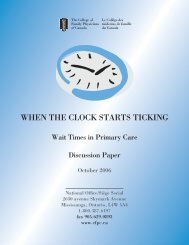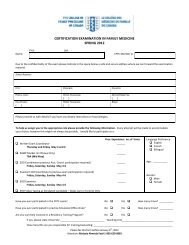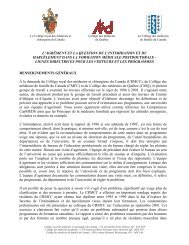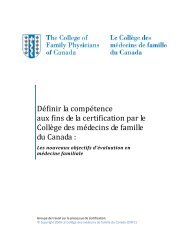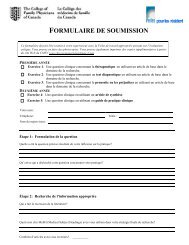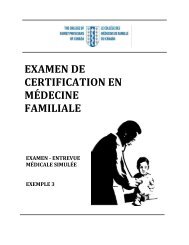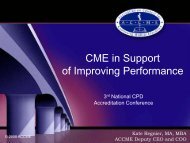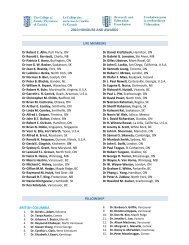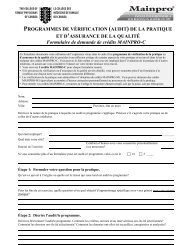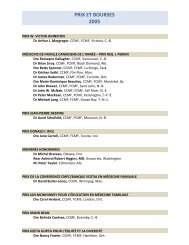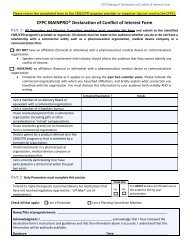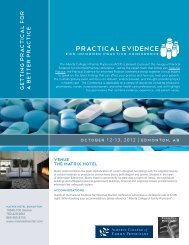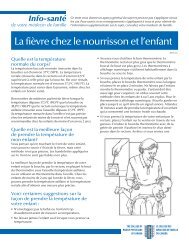Prison Medicine - The College of Family Physicians Canada
Prison Medicine - The College of Family Physicians Canada
Prison Medicine - The College of Family Physicians Canada
You also want an ePaper? Increase the reach of your titles
YUMPU automatically turns print PDFs into web optimized ePapers that Google loves.
Version March 12, 2008To train clinicians who will work with individuals and their current community insideprison and their future community upon release from prison, and will engage them inmeeting these needs (community needs assessment, health status, long term planningetc).To train clinicians who will develop an understanding <strong>of</strong> the health needs <strong>of</strong> peopleinside prison, and who will acquire the skills to address some <strong>of</strong> these health issues.To provide learners with an opportunity to work as part <strong>of</strong> an inter-pr<strong>of</strong>essionalteam in providing health care for a population.To have access to a large Aboriginal population since it is an unfortunatefact that Aboriginal people are over-represented in the Canadian prisonsystem.Personal objectives for this rotation<strong>The</strong> learner should discuss their personal prison medicine objectives with their prisonmedicine faculty supervisor at the beginning <strong>of</strong> their rotation.Rotation Objectives1. <strong>The</strong> family physician is a skilled clinician1.1. To demonstrate an understanding <strong>of</strong> health concerns <strong>of</strong> people in a prisonenvironment, such as:1.1.1. Chemical dependence: tobacco, alcohol, & drugs (prescription and illicit drugs).Learners will become skilled with assessment and management <strong>of</strong> a patient withchronic chemical dependence, withdrawal and methadone prescribing.1.1.2. Violence and abuse (spousal and child abuse, and sexual assault, includingrelated legal obligations). Both are prevalent in the lives <strong>of</strong> the prison inmates,both outside and inside <strong>of</strong> prisons. Learners will gain an understanding <strong>of</strong> theimpact <strong>of</strong> violence and abuse in the lives <strong>of</strong> prisoners1.1.3. Mental health: in particular depression, suicide attempts, management <strong>of</strong>overdoses, prevention, and the psychological effects <strong>of</strong> chemical dependence.1.1.4. Infectious diseases: Tuberculosis, HIV, Viral hepatitis, STDs1.2. To understand prison life, the inter-play <strong>of</strong> addiction and crime, and the barriersand facilitators to the delivery <strong>of</strong> health care to prisoners1.3. Consider the history <strong>of</strong> “non-compliance” with marginalized people in prison, anddevelop skills to invite their participation in their health care1.4. Acquire an understanding <strong>of</strong> traditional perspectives <strong>of</strong> Aboriginal health and therole these may play in attaining health for those Aboriginal people in and out <strong>of</strong>prison.1.5. Acquire an understanding <strong>of</strong> the legal, pr<strong>of</strong>essional and ethical implications forpatients, self and prison staff <strong>of</strong> providing medical care in a correctional setting2. <strong>The</strong> doctor-patient relationship is central to the role <strong>of</strong> the family physicianPage 2 <strong>of</strong> 11



